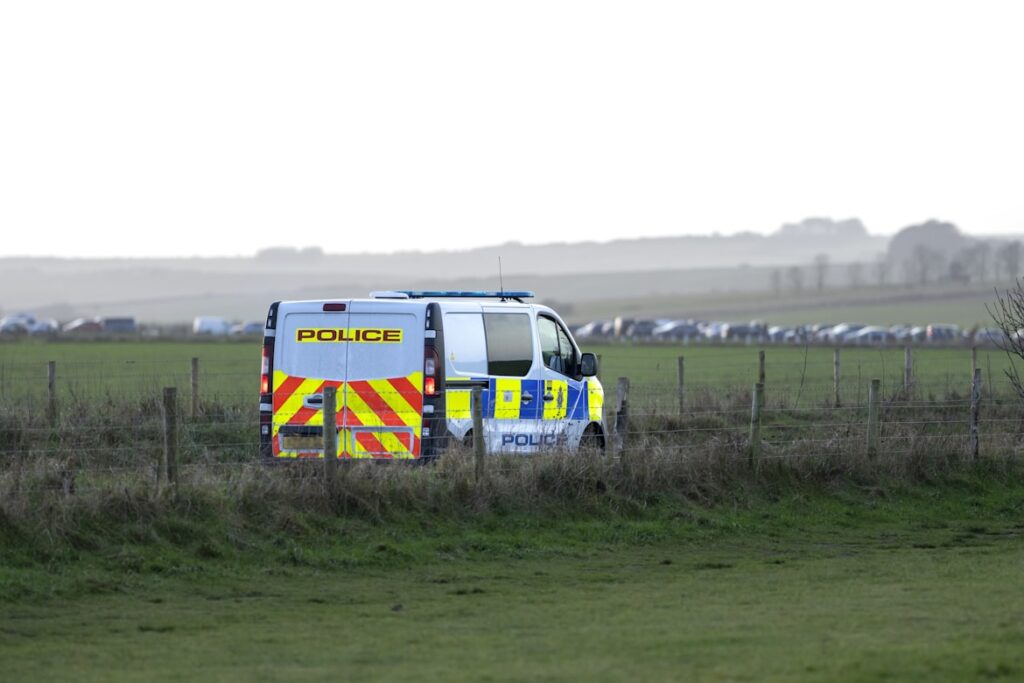Surrey Police arrested 18 people after female officers went undercover as joggers. The officers faced harassment from men within minutes of starting their runs. The month-long “Jog On” operation targeted areas where women regularly reported catcalling, following, and sexual advances while exercising.
The abuse started almost immediately during evening rush hour patrols when incidents typically peak. Inspector Jon Vale said that one officer was honked at within 10 minutes, and then another vehicle slowed down, making gestures, just 30 seconds later. The frequency caught even experienced officers off guard.
Officers volunteered for these undercover roles and coordinated with specialist support teams positioned nearby. The moment harassment occurred, plainclothes units stepped in immediately. A news crew from LBC accompanying the operation witnessed two undercover officers being targeted within minutes. A man in a large truck honked and made gestures as he passed them.
What Actually Happened on the Ground
PC Abby Hayward volunteered to go undercover and experienced the daily reality many women face. “We get catcalled. We get honked at. People slow down just to stare or lean out the window to shout something,” she said. “It’s so common, but it’s harassment and it needs to be recognized as that.”
This operation was one of the first major enforcement actions under the new 2023 harassment law. The legislation makes sex-based public harassment a specific crime and allows for prison sentences of up to two years for behavior targeting someone because of their sex.
Arrests included charges for harassment, sexual assault, and theft. The theft charges came from opportunistic crimes that occurred during harassment incidents. Specialist police units positioned nearby intervened immediately when harassment occurred.
Vale explained that harassment may not always meet the legal line for prosecution, but it has huge effects on women’s lives. “Someone staring, shouting, slowing down stops women from doing something as simple as going for a run,” he told the news crew.
Stopping Harassment Before It Starts

Surrey Police designed the operation to prevent violence against women before it escalates. The problem goes far beyond individual incidents, Vale explained. “This type of harassment isn’t just being experienced by communities in Reigate and Banstead, but communities across the whole of Surrey, and it’s unacceptable.”
The operation combined enforcement with education. This reflects Surrey’s bigger strategy to tackle violence against women, developed after high-profile murders like Sarah Everard and Sabina Nessa. Some offenders received warnings and serious conversations about their behavior rather than arrests, particularly when they showed willingness to change and genuine shock at learning their actions caused harm.
Two men driving a van apologized after being stopped for harassing a female runner. “They said sorry to us, and it meant a lot as it shows this operation is working,” Hayward said. “This behavior is either a precursor to something more serious or it’s fixable through awareness. That’s where our interventions come in.”

Not every encounter led to arrests. Officers found that some men genuinely did not realize their behavior was harmful or threatening. These cases resulted in educational conversations about the effects of their actions on women’s daily lives. For repeat offenders or more serious cases, police pursued full criminal prosecution.
Not Everyone Agrees With the Approach
The preventive approach generated intense online debate about police tactics and how police spend their time and money. Supporters praised it as “preventive policing” while critics labeled it “entrapment.” The Free Speech Union criticized the operation as a “bizarre social psychology experiment.”
Officers defended the strategy as necessary given the widespread nature of the problem. Vale told potential harassers, “You don’t know if the woman you’re harassing is a police officer, and that’s the point. We want people to think twice before acting like this.”
Surrey Police issued a direct warning. “The next time you see a female jogger, just think, they could be a police officer with colleagues nearby ready to stop you. Your behavior is not welcome in Surrey.”
Just How Widespread Is the Problem?
Recent research from the University of Manchester shows how big the issue is. The 2024 study found that more than two-thirds of women who regularly exercise experienced harassment while running. Yet only 5% reported incidents to police, reflecting a broader pattern where victims rarely speak up.
Multiple studies confirm women’s safety concerns. Research shows that 92% of women report feeling concerned for their safety while running. Sport England data shows that 72% of women alter their exercise routines during winter to avoid harassment risks, with 24% sticking only to well-lit routes and 23% avoiding certain areas completely.
Surrey County Council data shows 49% of 450 female residents surveyed never report harassment incidents to police, showing massive underreporting of these crimes.
What This Could Mean for Policing Nationwide
Surrey Police already use undercover tactics in bars and clubs to catch predatory behavior. The jogging operation builds on that experience. It is rolling out across the county as a pilot. If it works, it could guide policing nationwide.
Other forces are testing different ideas. The Metropolitan Police in London pairs women’s running clubs with officers for support, not arrests. Surrey focuses on enforcement. London focuses on partnership. Both address the same problem. Officials have not confirmed any expansion beyond Surrey. Other UK forces are watching. The strongest effect may be psychological. Potential harassers now wonder if any female jogger could be an undercover officer. That doubt deters abuse beyond the arrests. This is a shift toward preventive policing that validates women’s daily experiences and adds real consequences to behavior once dismissed as harmless.
Read More: Nurse’s License Suspended Amid Allegations of Sexual Abuse Involving Stepson, 15

